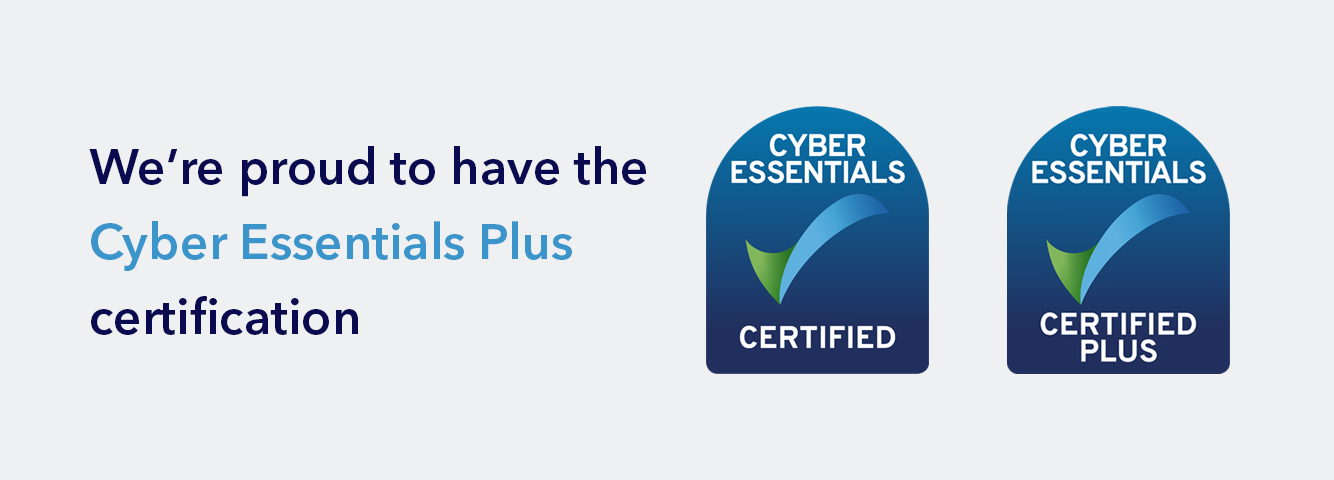SCG and deviceTRUST announce a Strategic Partnership.
Author name
We are proud to announce a Strategic Partnership, formed to help
expand collaboration between the two organisations
SCG & deviceTRUST – Simple. Dynamic. Integrated

The virtualization and remoting of corporate applications and desktops is now an established delivery technology, enabling employees to work from any location, on any device, at anytime. We believe this technology requires more information about the user and their connected device to be made available to the virtual session. deviceTRUST delivers this detailed context of the connected device and the user into the virtual session, providing a dynamic, secure and compliant workspace.
The post SCG and deviceTRUST announce a Strategic Partnership. appeared first on SCG - Stadia Consulting Group.

20 Feb, 2024
We are proud to announce that we have achieved Cyber Essentials Plus certification, the higher-level qualification of the Cyber Essentials scheme. This certification is a government-backed scheme that demonstrates our commitment to protecting our organisation and our clients from cyber threats.

12 Sep, 2023
Maybe. Migrating applications and infrastructure to the cloud offers several benefits that can positively impact organisations in various ways. Stadia has enjoyed bringing the benefits of cloud computing to many of our clients. It isn't necessarily for everyone, but if you haven't migrated some or all of your applications/infrastructure to the cloud, are you missing out? Let's take a look at the various aspects, starting with some of the key benefits: Cost Efficiency: Buying, maintaining, and refreshing your own hardware can be costly. Cloud computing often reduces capital expenditure on physical hardware and datacentres. You pay for resources as you use them, which can lead to cost savings, especially for small and medium-sized businesses. Scalability: Cloud services allow for easy scaling of resources up or down based on demand. This elasticity ensures that your applications can handle sudden spikes in traffic or growth without the need for significant upfront investment in hardware. Automatic Updates: Keen to see the back of those out-of-hours patching rotas? Cloud providers handle hardware and software updates, including security patches and upgrades, reducing the maintenance burden on your IT staff. Flexibility and Agility: Cloud platforms provide a wide range of services and tools that enable rapid development and deployment of applications. This agility allows organisations to respond quickly to changing market conditions and customer needs. Global Reach: Cloud providers have datacentres in multiple regions worldwide. This global presence allows you to deploy applications closer to your users, reducing latency and improving performance for a global customer base. Security: Cloud providers invest heavily in security measures, often surpassing what individual organisations can achieve. They offer features like encryption, identity and access management, and compliance certifications to help protect your data and applications. Reliability and High Availability: Cloud providers offer robust service-level agreements (SLAs) that guarantee high uptime and availability. Redundancy and failover capabilities are built into their infrastructure to minimise downtime. Disaster Recovery: Cloud services make it easier to implement disaster recovery and backup solutions. You can replicate your data and applications across multiple regions or datacentres, ensuring business continuity in case of disasters. Collaboration and Mobility: Cloud-based applications and services can be accessed from anywhere with an internet connection. This promotes remote work and collaboration among geographically dispersed teams.

CONTACT US
+44 (0) 207 0399 266
info@stadiacg.co.uk
Stadia Consulting Group
8 Prykes Drive, Chelmsford, Essex CM1 1TP
USEFUL LINKS
© 2024
All Rights Reserved | Stadia Consulting Group Ltd


